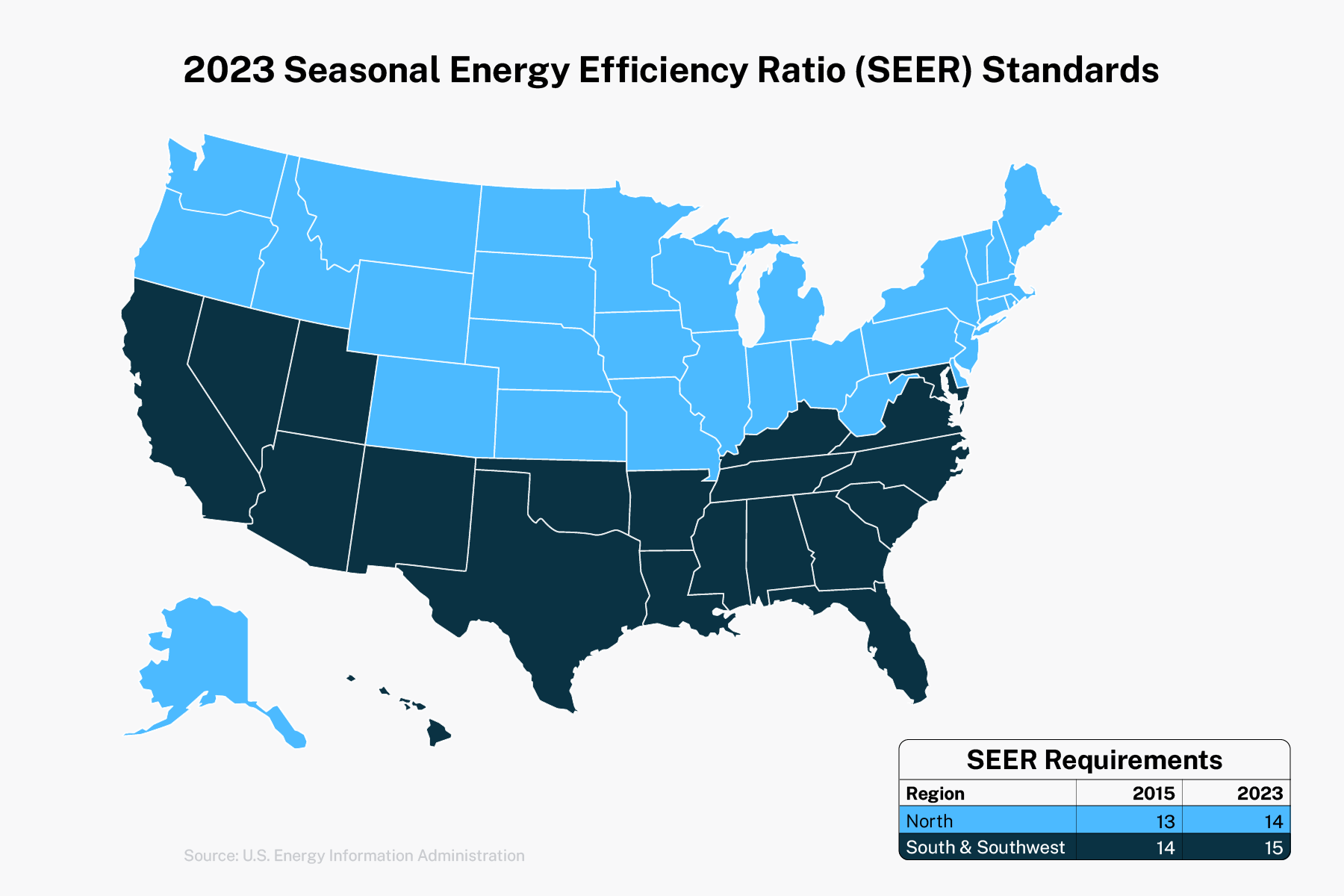Want to save with Paschal? Don’t miss our current offers and specials

Want to save with Paschal? Don’t miss our current offers and specials
Return to Paschal Resource & Education Hub

Buying a new HVAC system for your home can get a little confusing. It is important to educate yourself as a homeowner they’re getting a system that meets their needs and are confident in their purchase.
SEER is an acronym you’ll see while you’re shopping for a new HVAC system. This is a common question that many homeowners ask when looking to replace their HVAC system. Two of the most common are 16 SEER and 18 SEER HVAC systems. Let’s discuss the difference, so you can make sure you are finding the right fit and maximum efficiency and comfort for your home.
SEER stands for Seasonal Efficiency Ration. In a nutshell, the higher the SEER rating, the more efficient your system runs. The rating scale is based on how good your unit cools compared to how much energy it uses. Bottom line, the SEER ratio of an HVAC unit is calculated by dividing the cooling output by the energy it uses to cool in watt hours.
When it comes to bills, savings makes sense! Having a higher SEER rating will save you money on energy efficiency. An 18 SEER is around 12.5% more efficient than a 16 SEER. That means for every $100 you spend to cool your home with a 18 SEER, you’ll save about $12.50 more than the 16 SEER. A good rule of thumb, the higher the SEER the more you’ll save on your electric bill.
The bigger your home, the higher the SEER rating you’ll want on your HVAC system. The minimum requirement set by The U.S. Department of Energy begins at 13 SEER, but there are systems that go much higher to maximize cooling and comfort.
SEER requirements from the U.S. Department of Energy are based on geographical regions. Northern states, including Missouri, trend colder, therefore the DOE recommends a 13 or higher. Southern states, including Arkansas and Oklahoma, trend warmer, so the DOE requires at least a 14 SEER rating for new HVAC systems.

As you’re weighing your SEER rating options, you need to consider a few criteria, including your personal comfort and budget:
The size of your home affects the HVAC size you’ll need to keep it cool. If you live in a larger home, it’s recommended you side with a higher SEER rating in order to keep your family comfortable.
Settling for a system that is too small for your home will result in uneven heating and cooling.
Air conditioners & heat pumps are available in single-stage, two-stage and variable stage systems. “Stages” refer to the fan speed. A single-stage model runs off the same speed every time it kicks on and off.
If you are looking to increase your comfort in your home, a two-speed system may help! A two-stage model will run at two speeds, depending on your cooling needs. These systems run more efficient and include added benefits like:
Variable-stage HVAC systems run the most efficiently, because their motors are capable of running at any a wide-range of speeds depending on how cool or hot you want your air.
If you have a really old air conditioning system, maybe rated around 8 or 9 SEER, a new, 16 SEER system will give you a significant boost in savings, efficiency, and comfort.
In general, if you are looking for a more efficient unit, and looking to save on your utility bills, then go with the highest SEER rated unit that you can.
Sometimes these decisions seem like splitting hairs. We can make sure you’re comparing apples to apples so you can feel confident you’re making the best decision for your budget and needs! As the most-trusted home service provider in Arkansas & Missouri, Paschal Air, Plumbing & Electric can help you figure out the right SEER rating for your situation. If you’re looking to replace your air conditioner or want more information, contact the professionals at Paschal at 479-751-0195 or schedule an appointment online at www.gopaschal.com.